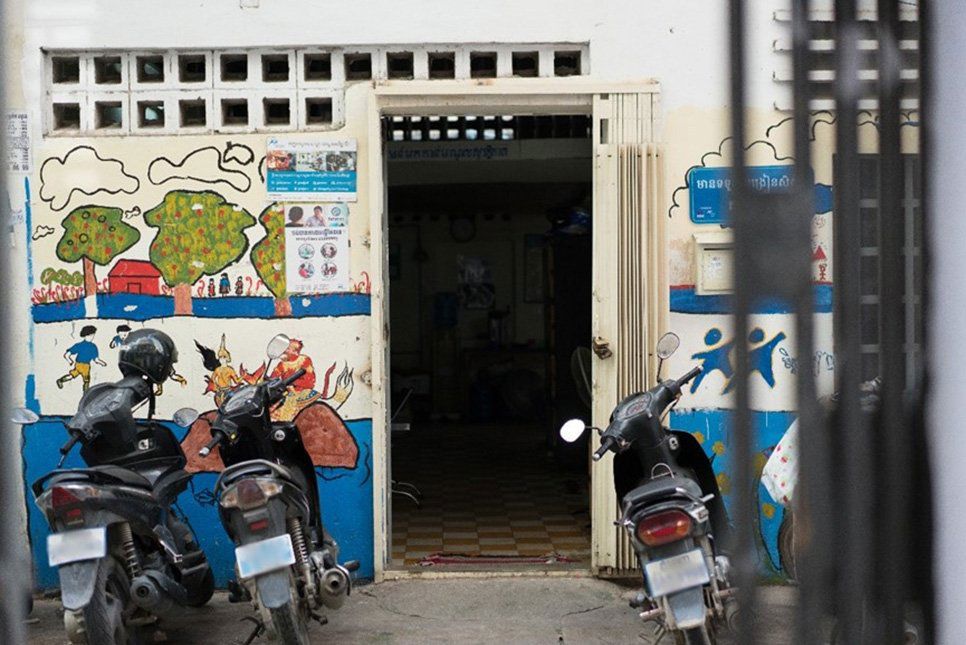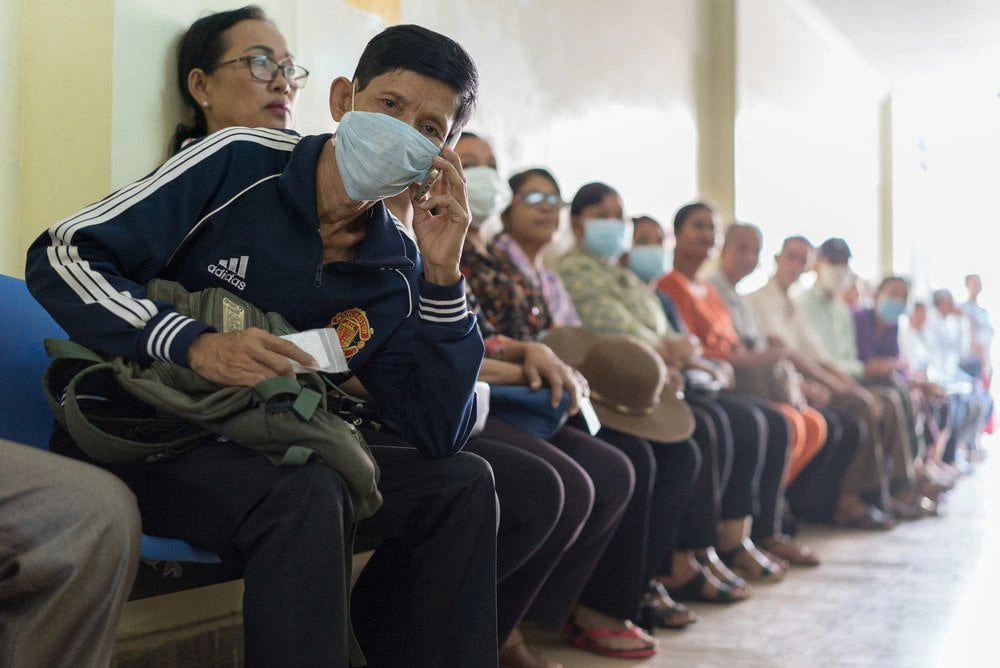Turn into this narrow side street from a traffic-choked avenue in Phnom Penh, the capital of Cambodia, and the volume suddenly drops.
Removed from the honking tuk-tuks and bathing in shade, a bright mural welcomes visitors to the drop-in centre of a charity, called ‘Mith Samlanh’. Meaning ‘close friend’ in Khmer, the national language, Mith Samlanh was founded in 1994 to support street children.
Today the challenges of street life are such that Mith Samlanh reaches out to young adults, too. They come to this centre for food, to rest and receive medical care, including help with drug addiction.
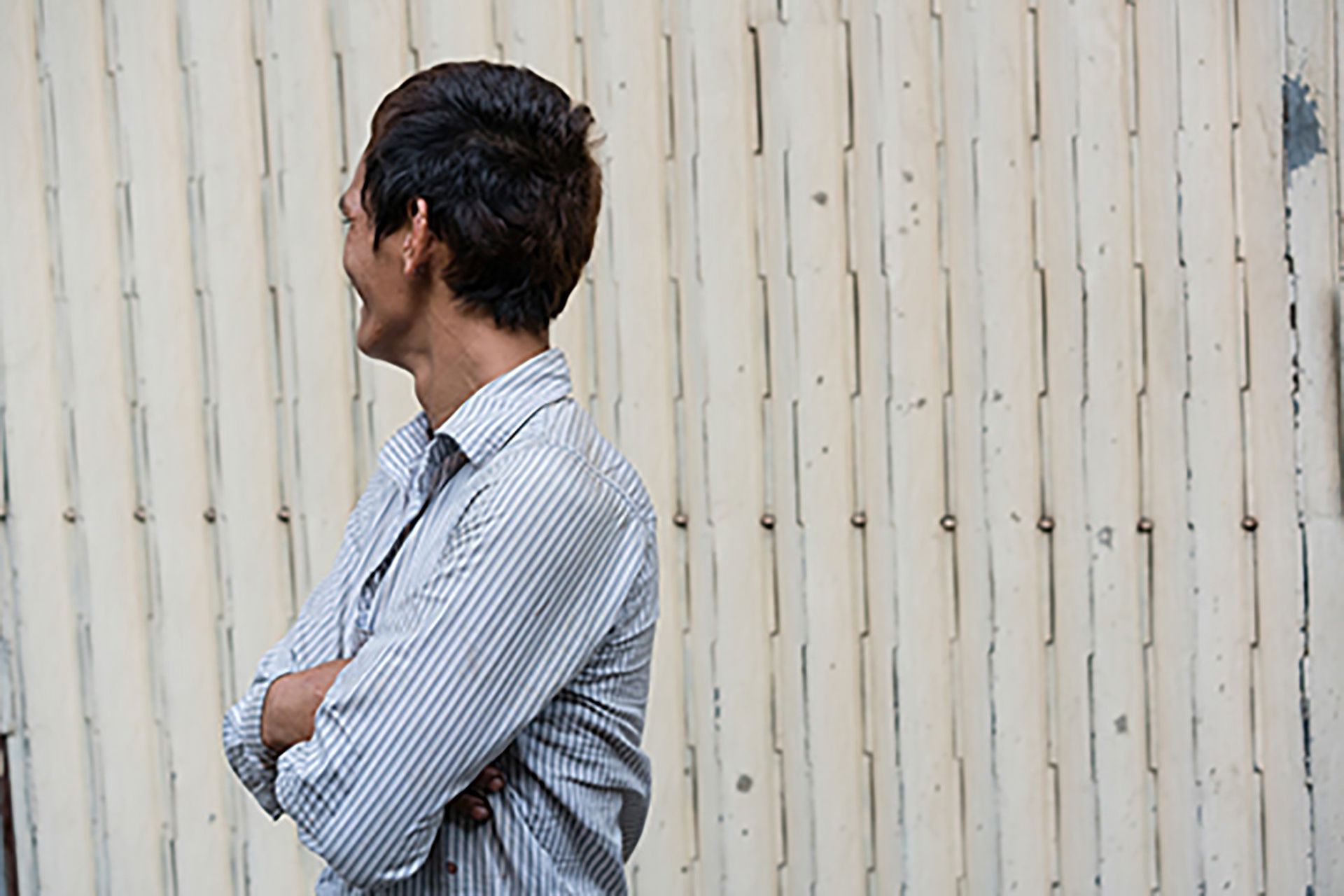
While data on opiate use in Cambodia is scarce, the country is a transit route from the Golden Triangle – an area overlapping Myanmar, Laos and Thailand; one of the largest opium production hubs in the world. The impact on young Cambodians is on display every day, in centres like this one.
Medical staff from Médecins Sans Frontières / Doctors Without Borders (MSF) have worked in this centre since August 2017 to offer free tests and treatment for hepatitis C, an often serious and lifelong illness. It is blood borne, and easily transmitted through needles.
Chenda was one of the first Mith Samlanh clients to be tested. He was positive. He says he came to Phnom Penh from the countryside after a row with his family. That was twenty years ago. “I sleep on the street”, he explains, “in front of a house.”
The centre is open every weekday, and Chenda visits daily. “Here I can rest, get the medicine, get a snack.” Clients view the centre as a safe place, with services they trust.
“When I learned treatment was available, I did it quickly because I knew I needed it to survive”, Chenda says. “The drugs are expensive — and [here] I could get them free.”
A treatment most Cambodians can’t afford
‘Expensive’ is an understatement. In Cambodia, a three-month course costs more than $1,000: a huge burden for most Cambodians, let alone those battling a substance addiction.
A new type of treatment used, called direct acting antivirals (DAAs), helps explain the cost. DAAs have revolutionised hepatitis C treatment. Where patients would previously endure a longer and far less effective regimen with painful side effects, with DAAs patients follow a simple course of drugs for twelve weeks. In MSF’s project in Cambodia, more than 95% of patients reach cure.
MSF is offering the test and treatment for free. When the service opened in 2016, people from all over the country flocked to the hospital in Phnom Penh where the team operates. Many people reported having been diagnosed years – if not decades – ago.
However, they had no way to afford the arduous treatment, let alone the new DAAs. More than 10,000 people have come to get tested, and a third were positive. (MSF’s project will soon expand to other locations outside Phnom Penh.)
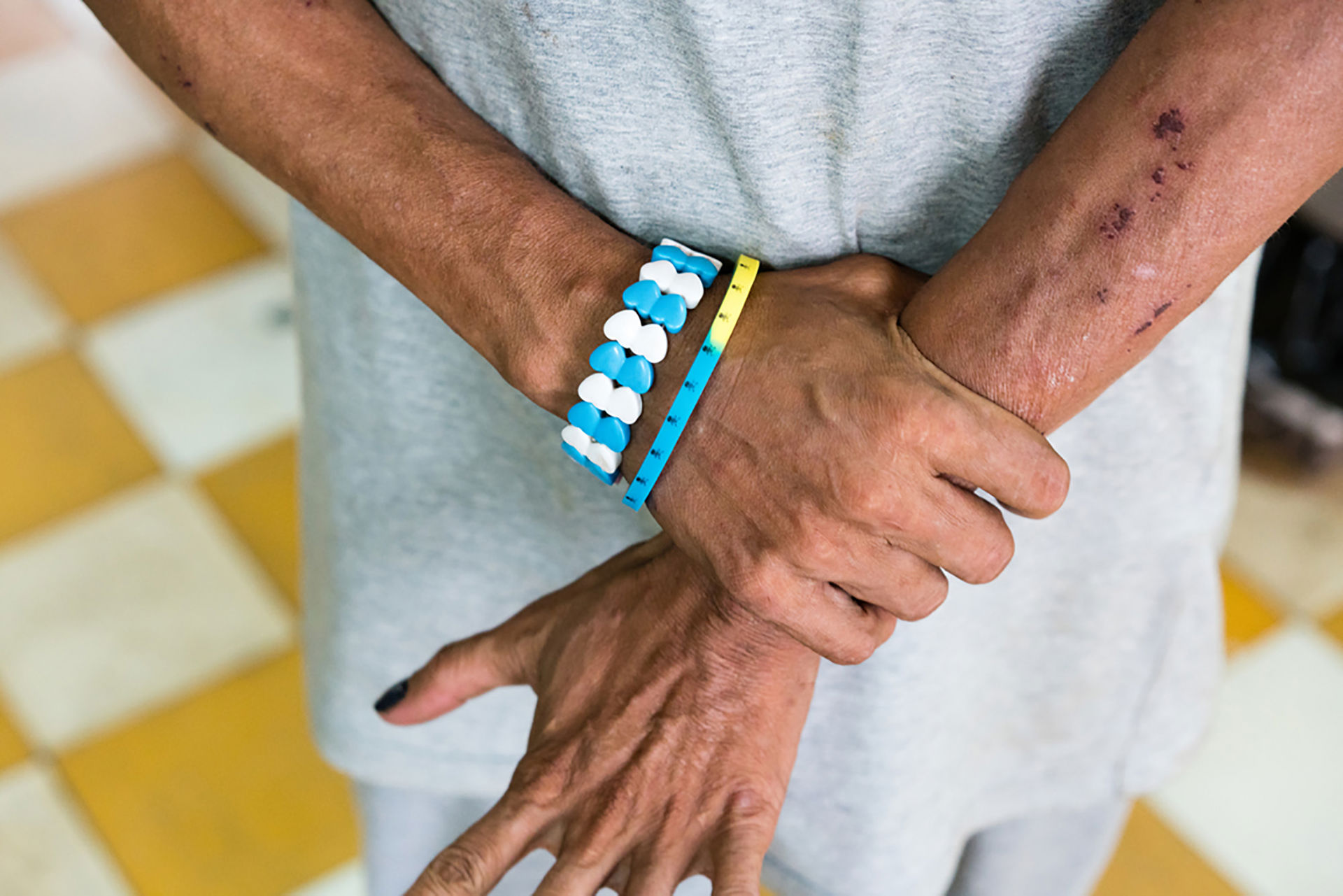
The age of many of these patients suggest they were infected in the 1980s, when Cambodia’s health system was reeling from the aftermath of civil war. One possible consequence is that medical professionals, facing needle shortages, were forced to re-use them.
A stretch of obstacles on the road to treatment
Contrary to those patients, young people injecting opiates are getting infected and transmitting the disease today. And reaching out to them raises its own set of challenges.
“I work outside a supermarket”, another client, Chesda, begins, “as a sex worker. When I’m not busy, when I’m free, I come here [to the centre].”
She adds: “But when I’m busy I can’t. And I work every day.”

She also took the test. The result was unclear. “They needed to take more blood, and it was difficult. The nurse could not take it.”
This is a common problem. Because of repeated intravenous drug use, clients’ veins can be heavily scarred. This makes them difficult to locate, puncture and draw blood from.
Encouraging clients to return for follow-up tests is also difficult, due to transient lifestyles, homelessness or their efforts to avoid crackdowns. One client was arrested twice while on treatment – and twice their Hep C drugs were seized.
These obstacles mean that of 115 people tested – more than half of them positive – just ten clients are currently on treatment.
The challenge of sticking to treatment
Another woman, also positive, echoes the same problems: “Every time the doctor tells me to come. Every week, every week. So I try, so I can get better. But I work. Five o’clock in the morning I start, and five in the afternoon I finish.”
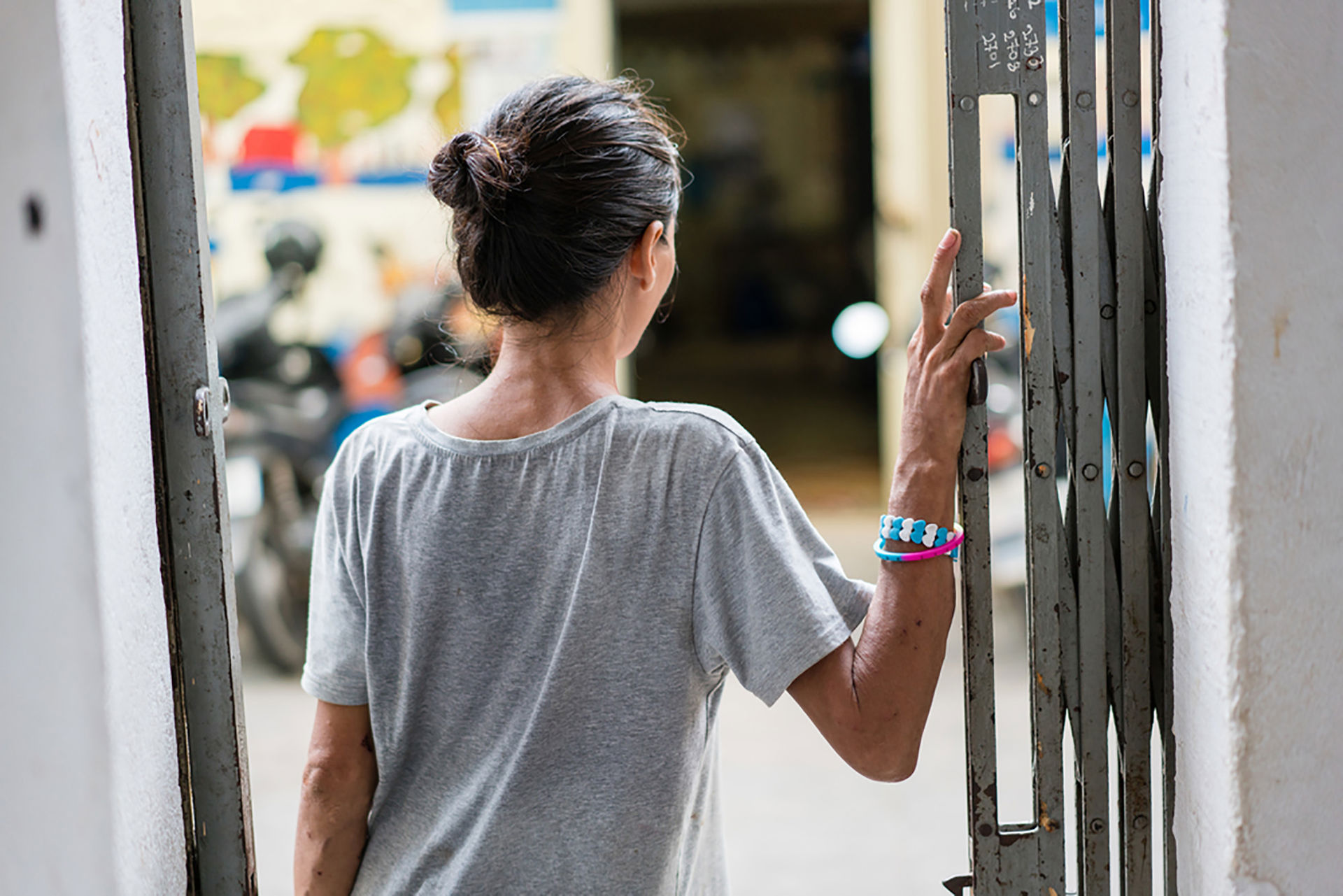
And for those who can start a treatment, their situation or work – including those with relatives to support in the countryside – means it is hard to visit the centre every day.
Staff from Mith Samlanh and MSF try to tailor treatment to a person’s circumstances. For example, some clients are following a methadone treatment to wean themselves off opioid dependence: By offering hepatitis treatment to those who are already engaged in care, the clients are easier to locate and maintain contact with, meaning they have a better chance of completing their course.
Chenda, the first patient, explains the challenge is to stay focused when out in the street.
How does he handle the weekends, when the centre is closed?
“I have to take the treatment, wherever the place”, he replies. “I am responsible for Saturday and Sunday.”
(Names have been changed.)


